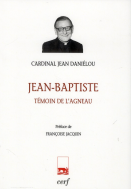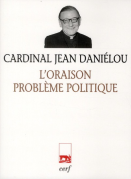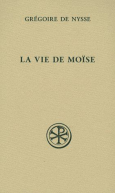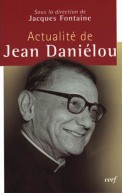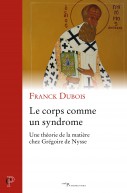
Origène
Collection Bibliothèque du Cerf
320 pages - mai 2012
30,00€
Paru en 1948, le livre de Jean Daniélou sur Origène a largement contribué à la réhabilitation d'un Père de l'Église qui compte parmi les grands auteurs de l'Antiquité chrétienne. À la différence de bien des études qui, jusque-là, privilégiaient souvent tel aspect de l'œuvre origénienne au détriment des autres, cet ouvrage en rassemble les diverses composantes et en manifeste ainsi toute la richesse. Après avoir replacé Origène dans le milieu de la communauté chrétienne à la fin du IIe siècle et dans la première partie du IIIe, Jean Daniélou montre comment ce Père de l'Église s'est situé par rapport aux courants philosophiques de son temps — leur empruntant çà et là des concepts ou des schèmes de pensée, mais répondant aussi aux objections que des philosophes pouvaient alors formuler contre le christianisme. Il présente sa manière de lire la Bible qui, pour une part, est très redevable de la tradition « typologique » héritée du Nouveau Testament et des premiers Pères, mais qui porte aussi la marque d'influences non chrétiennes (en particulier celle de l'œuvre composée par l'exégète juif Philon d'Alexandrie). Il expose, en outre, les idées théologiques d'Origène, depuis la cosmologie jusqu'à l'eschatologie, en passant par les doctrines de l'Incarnation et de la Rédemption. Il montre enfin qu'Origène est un « grand spirituel chrétien » et souligne l'influence que ce Père devait exercer sur l'histoire ultérieure de la mystique. Le livre de Jean Daniélou ne témoigne pas seulement de ce qu'a été le renouveau patristique au XXe siècle. Il laisse aussi entendre comment une grande œuvre du passé peut contribuer aujourd'hui à l'intelligence de la foi.
--
Published in 1948, this book by Jean Daniélou about Origen has greatly contributed to the restoration of a Father of the Church who was also one of the great authors of Christian Antiquity. Contrary to many studies which, until now, have privileged one aspect of his work to the detriment of others, this book assembles the diverse components, so revealing all their richness. After situating Origen at the centre of the Christian community at the end of the 2nd century and the beginning of the 3rd, Jean Daniélou shows how this Father of the Church stood in relation to the philosophical currents of his times— taking concepts or patterns of thought here and there, but also raising objections that the philosophers could then formulate against Christianity. The author presents his manner of reading the Bible which, in a certain respect, owes much to the ‘typological’ tradition passed on from the New Testament and the early Fathers, but which also bears the mark of non-Christian influences (especially of the work written by the Jewish exegete, Philo of Alexandria). Moreover, it presents Origen’s theological ideas, from cosmology to eschatology, taking in the doctrines of Incarnation and Salvation. Finally, it demonstrates that Origen is a ‘great spiritual Christian’ and insists on the influence this Father’s work was to deploy on the history of mysticism. Jean Daniélou’s book is not only a testimony to what was the patristic renewal of the 20th century; it also shows how a great work of the past can make a contribution to our intelligence of the faith today.
--
Published in 1948, this book by Jean Daniélou about Origen has greatly contributed to the restoration of a Father of the Church who was also one of the great authors of Christian Antiquity. Contrary to many studies which, until now, have privileged one aspect of his work to the detriment of others, this book assembles the diverse components, so revealing all their richness. After situating Origen at the centre of the Christian community at the end of the 2nd century and the beginning of the 3rd, Jean Daniélou shows how this Father of the Church stood in relation to the philosophical currents of his times— taking concepts or patterns of thought here and there, but also raising objections that the philosophers could then formulate against Christianity. The author presents his manner of reading the Bible which, in a certain respect, owes much to the ‘typological’ tradition passed on from the New Testament and the early Fathers, but which also bears the mark of non-Christian influences (especially of the work written by the Jewish exegete, Philo of Alexandria). Moreover, it presents Origen’s theological ideas, from cosmology to eschatology, taking in the doctrines of Incarnation and Salvation. Finally, it demonstrates that Origen is a ‘great spiritual Christian’ and insists on the influence this Father’s work was to deploy on the history of mysticism. Jean Daniélou’s book is not only a testimony to what was the patristic renewal of the 20th century; it also shows how a great work of the past can make a contribution to our intelligence of the faith today.
- Dimensions : 145x230x20
- ISBN : 9782204098489
- Poids : 470 grammes
Avec la collaboration de : Michel Fédou
DU MÊME AUTEUR
SC 1 La Vie de Moïse
Ou Traité de la perfection en matière de vertu
de Grégoire de Nysse
368 pages - sept. 2007
Actualité de Jean Daniélou
240 pages - nov. 2006
> VOIR TOUS LES LIVRES DE l'AUTEUR
DANS LA CATÉGORIE
La réception du livre de Qohélet
316 pages - mars 2016
SC HS Les Pères de l'Eglise aux sources de l'Europe
de Michel Stavrou ,Dominique Gonnet
544 pages - oct. 2014

